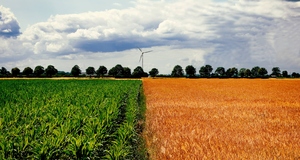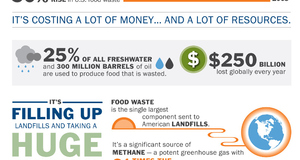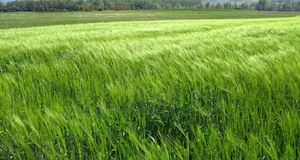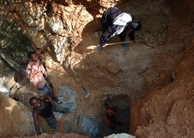From Discussions VOL. 10 NO. 3The GM Crop Network: An Overview of the Environmental, Political, Economic, and Human Health Contexts Surrounding Bt CornTowards answering such questions, I have developed an individual research project which studies peripheral and mucosal immunity to the Cry1Ab protein expressed in Bt crops. I have always had a curiosity for food, its connected disciplines, and how they collectively influenced health. And due to the lack objective, evidence-based information available to the lay food consumer and my interests in this subject, I aimed to create a project that could begin to pursue answers but also pose more intriguing questions regarding Bt crops. The study I created investigates the interaction between the humoral adaptive immune system and the Cry1Ab protein, one member of the Bt toxin family. I hypothesized that due its bacterial origin and immunogenicity in animal models, the Cry1Ab protein is not seen as an innocuous food antigen, and is thus capable of overriding homeostatic oral tolerance mechanisms to induce an antibody response in humans. In order to test this hypothesis, I have created a highly sensitive enzyme-linked immunosorbent assay (ELISA) specific for the CryAb protein that will enable appropriate serological testing. The primary aim of this study is to determine whether humans develop Cry1Ab-specific antibodies. Specifically, the study is interested in testing for the presence of Immunoglobulin G (IgG) and Immunoglobulin A (IgA) antibodies present in serum and intestinal secretions respectively. The goal is to correlate and compare the humoral response within the mucosal and peripheral immune systems, and thus answer questions regarding Cry1Ab immunogenicity in humans. As we continue to incorporate these GM plants into the global food system, there is an increasing need for evidence-based research regarding such transgenic crops . We must realize the future of our environment and health is tied largely to both agriculture and food production methods. However, food is also central to the traditions many of us look forward to each year; food’s impact on culture, and therefore larger societal growth, must also not be forgotten. Going forward, it is vital that we consider the individual, public, cultural, and environmental aspects of food and genetically modified crops for a better tomorrow. AuthorAlexander Razavi is a senior biochemistry, pre-medicine student. He has been working at the Center for Global Health and Diseases at the Case Western School of Medicine since August 2012. Alex’s interests in food as it relates to public health, medicine, and science have led him to start Case Western’s own Slow Food campus chapter as well as create an individual research project studying Bacillus thuringiensis (Bt) crops. His research project involves studying systemic and mucosal humoral immunity to the Cry1Ab protein expressed in Bt crops, and in addition to pursuing his scientific laboratory goals, he would like to inform students and faculty about the multidisciplinary network surrounding genetically modified crops in general. AcknowledgementsI would like to thank Dr. Christopher King, Dr. Indu Malhotra, Dr. Marianne Carey, and Alexander Barron for all of their support, mentoring, and guidance throughout the development of the project. We are grateful for the opportunity CWRU and SOURCE have provided through funding the project. In addition, I would like to thank Professor Mary Holmes for her everlasting support and encouragement; her SAGES class has inspired me to pursue food research avenues as they relate to individual and public health. ReferencesAction Group on Erosion, Technology, and Concentration (2007, October). The World’s Top 10 Seed Companies-2006. ETC Group. Atkinson, W., Sheldon, T.A., Shaath, N. & Whorwell, P.J. (2004) Food elimination based on IgG antibodies in irritable bowel syndrome: a randomized controlled trial. Gut 53, 1459–1464. Cardello, H. (2013). How the Milk Industry Went Sour, and What Every Business Can Learn From It. Forbes. Dupont, V. (2013, June). GMO corn, soybeans dominate US market. Phys.org Ethanol fuel basics. United States Department of Energy. Field, C., Barros, V., Mach, K., Mastrandrea M. (2014). Climate Change 2014: Impacts, Adaptation, and Vulnerability. Intergovernmental Panel on Climate Change. Global meat production and consumption continues to rise (2011). Worldwatch Institute: Vision for a Sustainable World. Gretzberg, D. (2011). Loss of Biodiversity and Genetically Modified Crops. GMO Journal Heinemann, J. A., Massaro, M., Coray, D. S., Agapito-Tenfen, S. Z., & Wen, J. D. (2014). Sustainability and innovation in staple crop production in the US Midwest. International Journal of Agricultural Sustainability, 12(1), 71-88. Harris, P. (2013, February 12). Monsanto sued small famers to protect seed patents, report says. The Guardian. Hayes, P. A., Fraher, M. H., & Quigley, E. M. (2014). Irritable Bowel Syndrome: The Role of Food in Pathogenesis and Management. Gastroenterology & hepatology, 10(3), 164. Hellmich, R. L., & Hellmich, K. A. (2012). Use and impact of Bt maize. Nature Education Knowledge, 3(10), 4. Iowa Corn Organization (2013). Corn report. Iowa Corn. James C. 2010. Global status of commercialized biotech/GM crops: 2010 ISAAA Brief 42. Liska, A. J., Yang, H., Milner, M., Goddard, S., Blanco-Canqui, H., Pelton, M. P., ... & Suyker, A. E. (2014). Biofuels from crop residue can reduce soil carbon and increase CO2 emissions. Nature Climate Change. Little, A. (2014). A journalist and a scientist break ground in the G.M.O. debate. The New Yorker. Mckenna, P. (2007). Corn biofuel ‘dangerously oversold’ as green energy. News Scientist. Neppl, C. (2000). Management of resistance to Bacillus thuringiensis toxins. The Environmental Studies Program—The University of Chicago. Questions & Answers on Food from Genetically Engineered Plants. Food and Drug Administration. Priedite, V., Nikiforenko, J., Kurjane, N., & Kroica, J. (2014). Antigen specific IgG4 in patients with gastrointestinal complaints. British Journal of Medicine and Medical Research, 4(1), 194-201. Schless-Meier, A. (2014, June). The Soil Will Save Us: A Manifesto for Restoring our Relationship with the Land. Civil Eats. Strobel, S., & Mowat, A. M. (1998). Immune responses to dietary antigens: oral tolerance. Immunology today, 19(4), 173-181. Technical Consultation on Low Levels of Genetically Modified (GM) Crops in International Food and Feed Trade (2014, March). Food and Agriculture Organization of the United Nations Vella, J. (1994). Learning to Listen, Learning to Teach. San Francisco, CA: Jossey Bass Zar, S., Mincher, L., Benson, M.J. & Kumar, D. (2005) Food-specific IgG4 antibody-guided exclusion diet improves symptoms and rectal compliance in irritable bowel syndrome. Scand. J. Gastroenterol. 40, 800–807. Suggested Reading from Inquiries Journal
Inquiries Journal provides undergraduate and graduate students around the world a platform for the wide dissemination of academic work over a range of core disciplines. Representing the work of students from hundreds of institutions around the globe, Inquiries Journal's large database of academic articles is completely free. Learn more | Blog | Submit Latest in Environmental Studies |



















